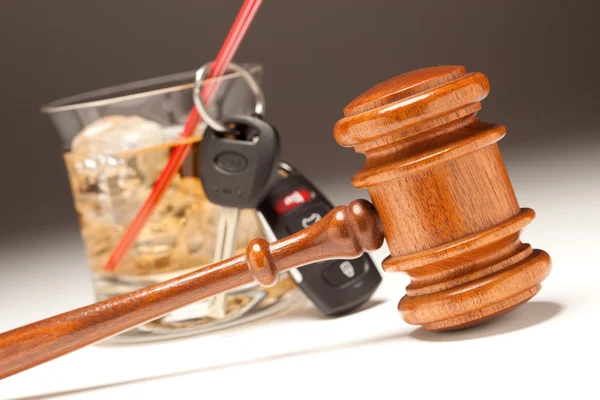What to Do After a Drunk Driver Hits You

A collision with a drunk driver can leave you stunned, injured, and unsure of what to do next. The chaos at the moment often overshadows the critical decisions that need to follow—decisions that can shape your recovery, both physically and financially.
What you do in the hours and days after the crash matters. From getting immediate medical attention to gathering the right documentation, each step plays a role in protecting your rights. With the stakes high and emotions running even higher, knowing how to respond can make the difference between added stress and a clear path forward.
Prioritize Your Safety and Health
Your safety comes first. If you’re able to move, get to a secure spot away from traffic and call 911 right away. Emergency responders can assess injuries, secure the scene, and file an official report that may become key evidence later. Even if you feel fine, let paramedics evaluate you—some injuries don’t show symptoms immediately.
Once help is on the way, try to stay calm and observant. Take note of anything unusual: the other driver’s behavior, the smell of alcohol, or slurred speech. These details can support your claim.
Document the Scene and Protect Your Case
Once the immediate danger has passed, begin collecting evidence, which can help in making the driver face the legal consequences of drunk driving. Use your phone to take photos of the vehicles, damage, skid marks, traffic signs, and any visible injuries. Capture the overall layout of the scene, as these details can be critical later. If the other driver appears intoxicated, record anything that stands out—unsteady movement, slurred speech, or the presence of alcohol containers.
Speak with anyone who witnessed the crash and ask for their contact information. Their statements may help verify what happened and strengthen your claim. If you’re unable to document the scene yourself, ask someone you trust or let the police know what to look for. The more information you have, the better positioned you’ll be.
Contact an Attorney Before Filing a Claim
Drunk driving accidents often involve both criminal and civil consequences, making them more complex than standard collisions. While the state may pursue charges against the impaired driver, that process doesn’t automatically address your medical bills, lost wages, or long-term suffering. This is where having legal guidance becomes essential.
An experienced attorney can help you gather critical evidence, deal with insurance companies, and build and present strong arguments that reflect the severity of the crash and its impact on your life. Legal professionals understand how to preserve your rights and avoid common missteps that could weaken your case. By reaching out early, you give yourself the best chance to pursue fair compensation and a smoother path to recovery.
Understand Your Compensation Rights
After a drunk driving accident, you may be entitled to more than just reimbursement for vehicle repairs. Medical expenses, lost income, and the emotional toll of the crash are all factors that can be included in a compensation claim. In many cases, victims can also pursue punitive damages, especially when the at-fault driver acted with clear disregard for others’ safety.
Each case is different, and knowing what applies to your situation takes legal insight. A qualified attorney can evaluate your damages and determine what types of compensation are appropriate. With the right guidance, you can avoid settling for less than you deserve and pursue a recovery that reflects the full impact the crash has had on your life.
Follow Medical Advice and Keep Thorough Records
Ongoing medical care is essential—not just for healing, but for protecting your claim. Attend all follow-up appointments, take prescribed medications, and follow your doctor’s instructions closely. Gaps in treatment or ignoring medical advice can be used by insurers to question the seriousness of your injuries.
Keep a detailed record of everything related to your recovery. This includes medical bills, prescriptions, transportation costs, and any assistive equipment you need. Consider keeping a journal to track your pain levels, mobility, and how the injuries affect your daily routine. These records create a clear picture of your physical and emotional challenges, which can significantly strengthen your case during negotiations or in court.
Monitor the Criminal Case
While your civil claim focuses on financial recovery, the criminal case against the drunk driver can still influence your outcome. Stay updated on court dates, charges filed, and any plea deals or sentencing decisions. A conviction can serve as powerful evidence of fault, which may support your claim for damages.
You may also have the opportunity to provide a victim impact statement. This allows you to share how the crash has affected your life, helping the court understand the broader consequences of the driver’s actions. Keeping an eye on the criminal proceedings ensures you’re informed and better prepared as your civil case moves forward.
Wrapping Up: Secure Your Recovery with Smart Action
The aftermath of a drunk driving crash can feel overwhelming, but the steps you take right now can shape your long-term recovery. Prioritizing your health, collecting strong evidence, and working with a trusted attorney puts you in the best position to seek justice and fair compensation.
You don’t have to navigate this process alone. With clarity, documentation, and the right support, you can move forward with confidence—physically, emotionally, and financially. Taking action today helps protect your future and holds the impaired driver accountable for the harm they caused.

